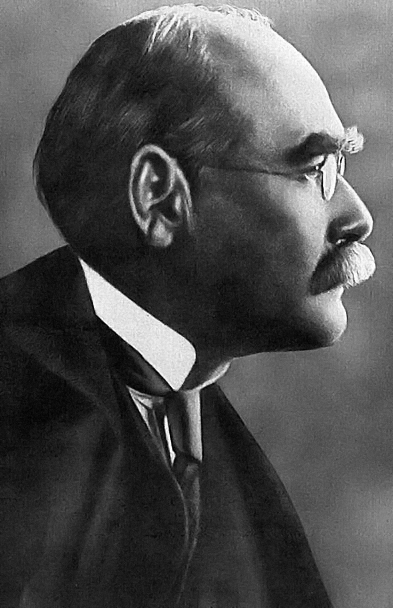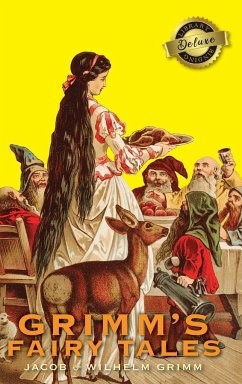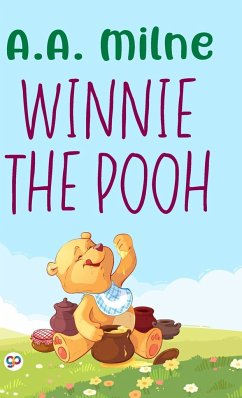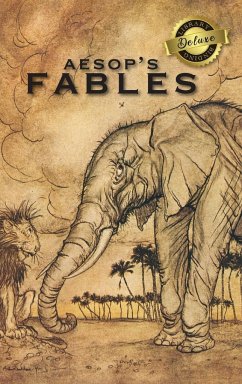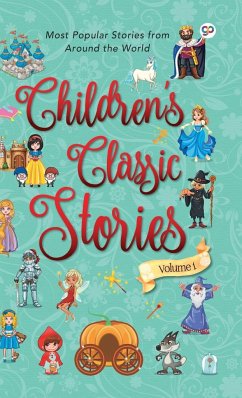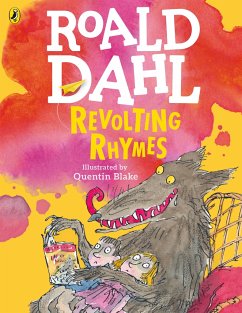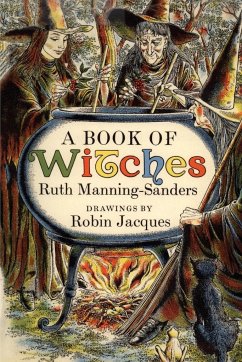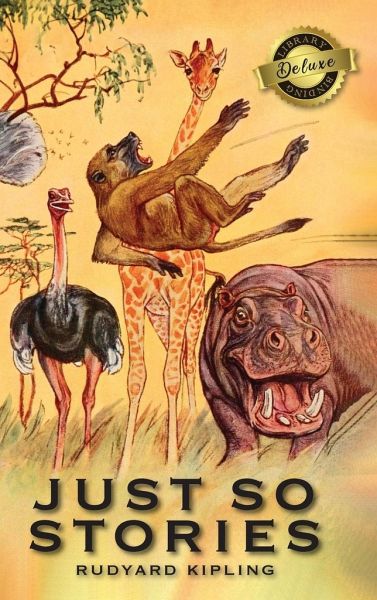
Just So Stories (Deluxe Library Edition)
Versandkostenfrei!
Versandfertig in 1-2 Wochen
30,99 €
inkl. MwSt.

PAYBACK Punkte
15 °P sammeln!
Just So Stories is a collection of origin stories that explain why something is the way it is. Nine of the thirteen Just So Stories describe how different animals acquired their most distinctive features, such as how the leopard got his spots. Kipling began working on the book by telling the first three chapters as bedtime stories to his daughter Josephine. These had to be told "just so" (exactly in the words she was used to) or she would complain. Included are fourteen color illustrations by Joseph Michael Gleeson. Evolutionary biologists have noted that what Kipling did in fiction in a Lamar...
Just So Stories is a collection of origin stories that explain why something is the way it is. Nine of the thirteen Just So Stories describe how different animals acquired their most distinctive features, such as how the leopard got his spots. Kipling began working on the book by telling the first three chapters as bedtime stories to his daughter Josephine. These had to be told "just so" (exactly in the words she was used to) or she would complain. Included are fourteen color illustrations by Joseph Michael Gleeson. Evolutionary biologists have noted that what Kipling did in fiction in a Lamarckian way, they have done in reality, providing Darwinian explanations for the evolutionary development of animal features. The stories have appeared in a variety of adaptations including a musical and animated films. They are considered a classic of children's literature and the book is among Kipling's best known works.



